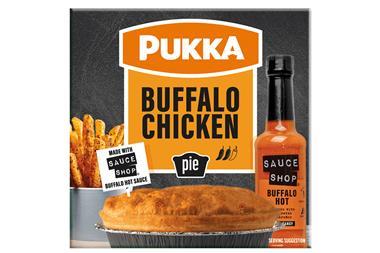
Nabim director general Alex Waugh on how a weak crop and the impact of Covid-19 and Brexit will bring further challenges for the milling and baking sectors
It has certainly been a tumultuous few months for supply chain managers, adjusting first to the on-off Brexit discussions and then the coronavirus pandemic, and it looks like there’s more to come for those dealing with cereals markets – especially wheat.
The very wet autumn and winter of 2019/20 made life extremely difficult for farmers trying to plant their crops. The conditions either made it impossible for growers to get their equipment onto the fields or meant crops drowned before they had got going. Consequently, surveys show the UK wheat area will be down by 20% or more.
On top of that, crops are expected to produce less grain as the wettest winter for years has been followed by the driest spring on record.
The Agriculture & Horticulture Development Board (AHDB) crop scores rate only 30% of winter wheat as good, compared with 80% last year. Consequently, UK wheat harvest estimates for 2020 range between 9.6m and 11.9m tonnes, a reduction of 25-40% on last year’s 16.3m-tonne crop.
Not surprisingly, the market is factoring in a deficit, and imports are expected to rise sharply to make up the difference. The benchmark quotation for bread wheat delivered to north-west England currently stands at £207 for November 2020, up 20% on the actual delivered price in November 2019.
All of this is perfectly manageable, of course. There have been poor crops in the past, meaning prices and imports have fluctuated as a result. Farmers, millers and bakers have adjusted to the new circumstances, so what makes this year different?
Firstly, we are all still coping with the effects of Covid-19 and the impact that has had on demand. The hospitality sector is only just beginning to re-open, in a process that is expected to take many months. There are expectations of a sharp increase in unemployment, with reduced consumer purchasing power as a result.
Secondly, the UK is once again in the throes of negotiation with the EU about our future trade relationship. Should there be no agreement, from 1 January 2021 we’ll see substantial taxes coming in on imports of wheat, flour and bakery goods from the EU. We’ll also see big taxes on equivalent goods exported from the UK. If the threat of no agreement is high, businesses at all stages of the supply chain will obviously be looking to move goods ahead of the 1 January deadline, causing further disruption to the already distorted pattern of supply and demand.
Finally, these uncertainties are likely to result in greater currency volatility, which immediately feeds though into commodity markets like wheat.
Batten down the hatches and be prepared for more storms ahead. It may be an uncomfortable ride, but the cereals, milling and bakery sectors have certainly shown in recent months that they can rise to a challenge!
































No comments yet